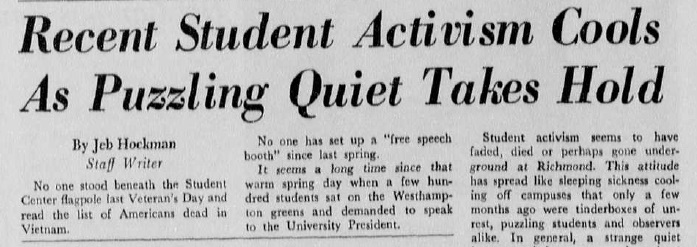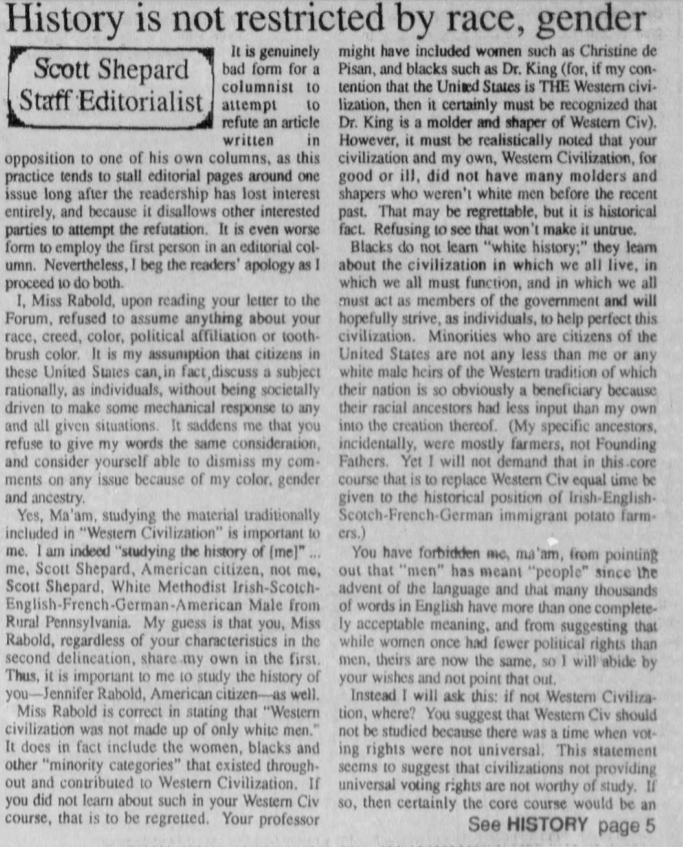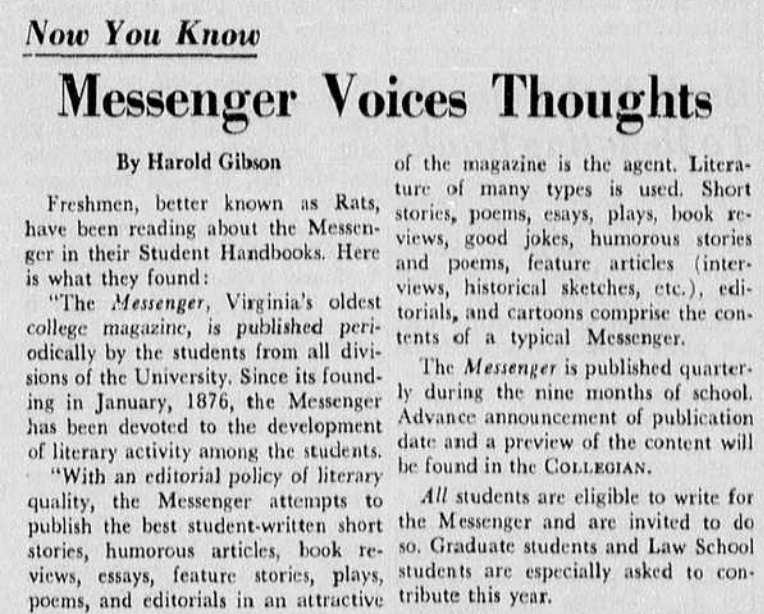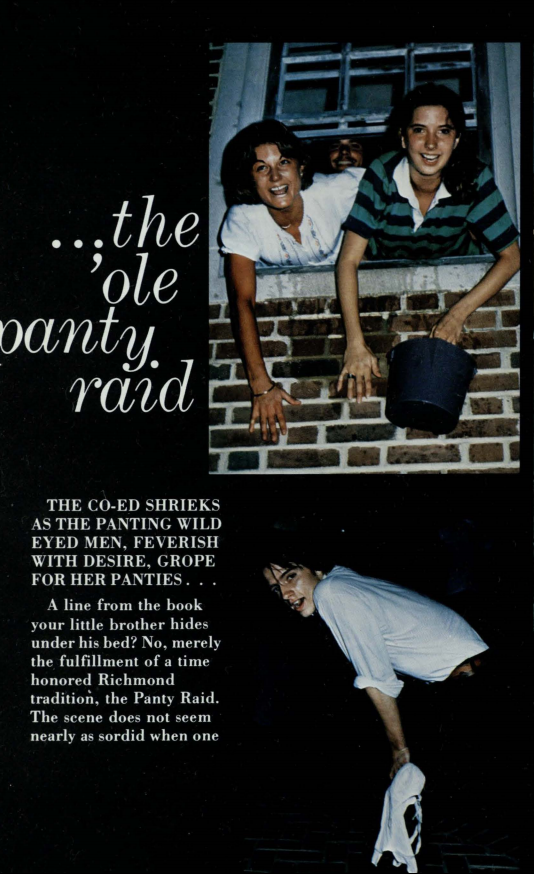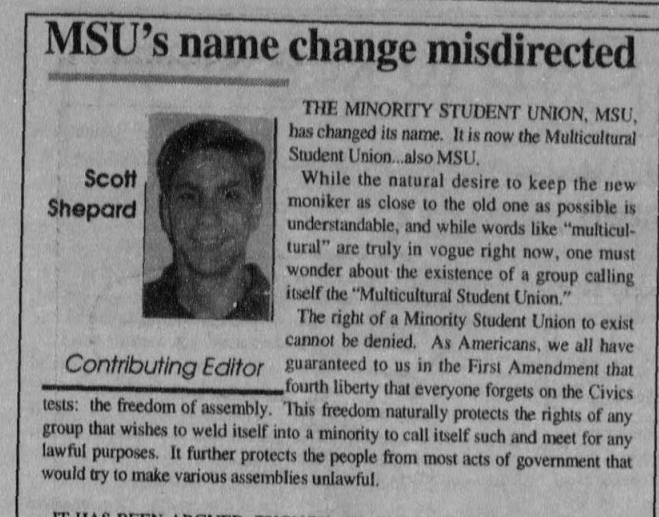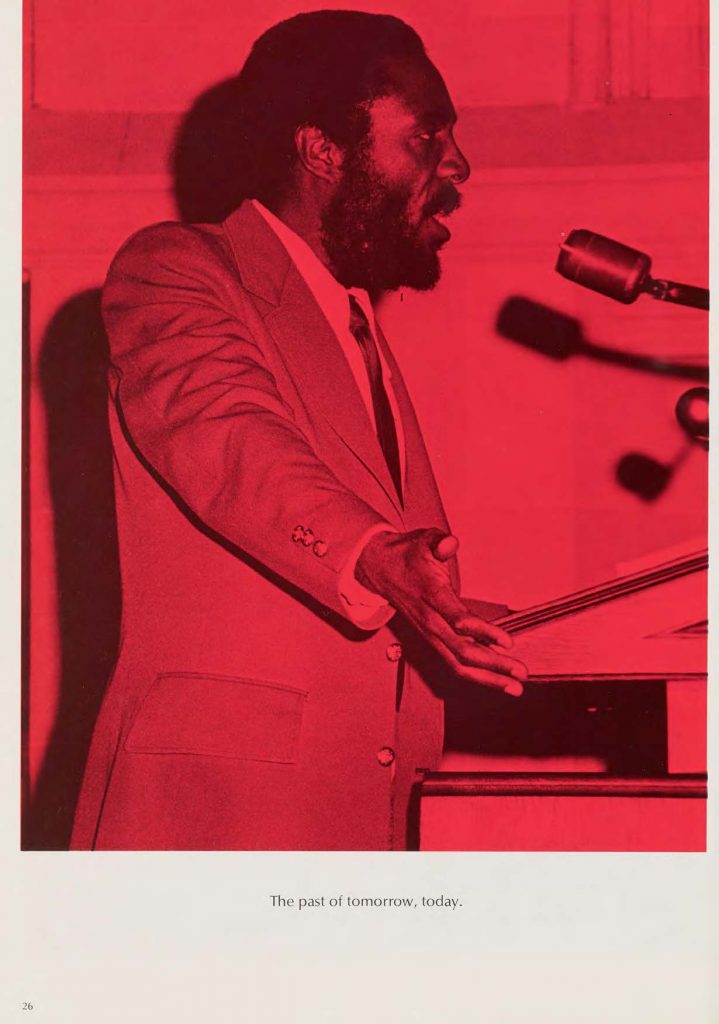by Joy Lim
Joy Lim is a Sophomore from Dallas, Texas majoring in Rhetoric/Communication Studies + Sociology and minoring in Anthropology. She is involved in the Westhampton College Government Association (WCGA), Alpha Phi Omega (APO), Delta Gamma (DG), Korean American Student Association (KASA), YouthLife, and is a mentor in the Peer Advisors and Mentors program (PAM). This is her first year working with the Race & Racism Project but she is interested in continuing this work in the future. She hopes to explore social justice issues not just on the University of Richmond campus but around the world as she continues her studies.
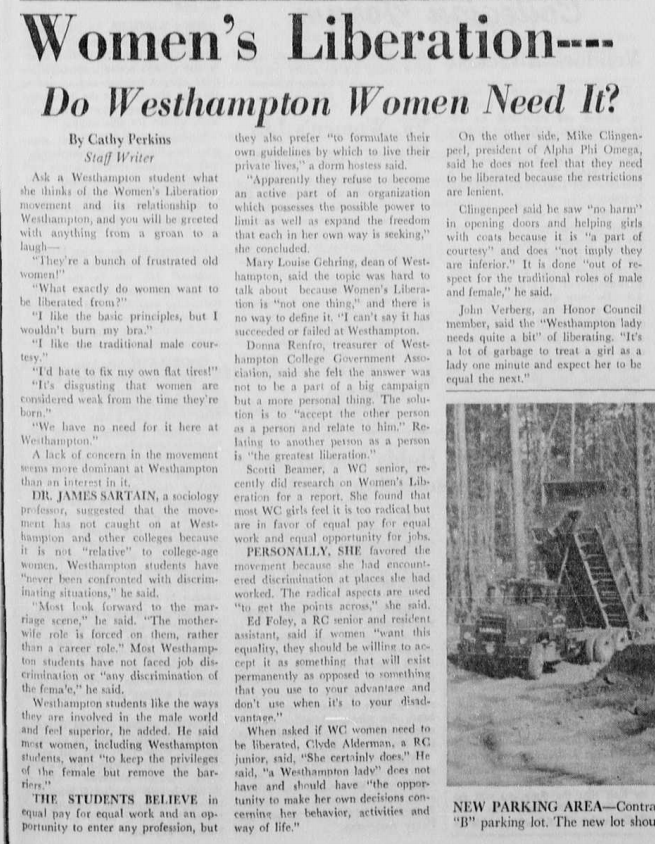 Westhampton and Richmond College students were questioned on their opinions surrounding the topic of the Women’s Liberation Movement in 1971. A variety of opinions were shared by University of Richmond students and a wide range of them were ridiculous. Opinions such as “I’d hate to fix my own flat tires!” to “I like the traditional male courtesy” were expressed by students of Westhampton College in response to the “radical” practices of feminists of that time. The students’ responses show an astonishing lack of care and compassion towards women around the world, much less themselves. The patriarchal environments in which these individuals grew up are clearly reflected within terms such as “traditional male courtesy” and “fixing their own tires.” The belief that men are solely responsible for the maintenance of cars and the perseverance of courtesy is laughable in July 2019. Yet the stereotypes placed on men and women were a source of tradition and social norms for the students at the University of Richmond due to the majority of students who came from conservative households.
Westhampton and Richmond College students were questioned on their opinions surrounding the topic of the Women’s Liberation Movement in 1971. A variety of opinions were shared by University of Richmond students and a wide range of them were ridiculous. Opinions such as “I’d hate to fix my own flat tires!” to “I like the traditional male courtesy” were expressed by students of Westhampton College in response to the “radical” practices of feminists of that time. The students’ responses show an astonishing lack of care and compassion towards women around the world, much less themselves. The patriarchal environments in which these individuals grew up are clearly reflected within terms such as “traditional male courtesy” and “fixing their own tires.” The belief that men are solely responsible for the maintenance of cars and the perseverance of courtesy is laughable in July 2019. Yet the stereotypes placed on men and women were a source of tradition and social norms for the students at the University of Richmond due to the majority of students who came from conservative households.

